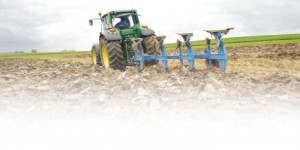
The East African | October 4 2010
By Paul Redfern
A World Bank report has confirmed that 45 million hectares of land in developing countries were bought in 2009, a tenfold jump from the previous decade.
Moreover, two-thirds of these controversial “land grabs” have been in Africa where critics say public and governmental institutions offer weak defences against western multinationals and Far Eastern state companies seeking farm land for food and biofuels.
While many development agencies and African campaigners are aghast at the latest news some believe that good land development projects are exactly what the world needs to solve the food crisis as they bring investment, knowhow, and transport links, as well as creating jobs.
But the morality of the global land rush is finely balanced and even the World Bank appears deeply torn.
While the report endorses the Bank’s open-door globalisation agenda, the report acknowledges “large land acquisitions come at a high cost. The veil of secrecy that often surrounds these deals must be lifted,” it said.
It warns of a “resource curse” that may enrich a small elite, leaving wreckage behind. Proposals are not properly screened. Peasants are forcibly displaced.
Communal grazing lands are closed off. Some investors manipulate opinion with a media blitz of false promises. Nothing has been produced so far on almost 80 per cent of the land purchased.
Benefits are often minimal, “even non-existent.” In Africa, the land rush is diverting effort from the core task of helping small farmers raise yields.
The Bank implicitly questions whether it is wise to divert half of the world’s increased output of maize and wheat over the next decade into biofuels to meet government “mandates.”
Theoretical reservoir
However, the world needs more food and there is a theoretical reservoir of 445 million hectares of unforested cropland in the world, on top of the 1.5 billion hectares in production.
“Productive agricultural land with water on site, will be very valuable in the future. And I’ve put a good amount of money into that,” Michael Burry, a Western entrepreneur told the Daily Telegraph.
The issue has set off a fierce backlash in particular in Madasgascar, where a deal with Korea’s Daiwoo Logistics to plant corn on territory half the size of Belgium led to the downfall of the government in 2008. The lease was subsequently revoked when the new president said “Madagascar’s land is neither for sale nor for rent.”
The allure of African land is obvious. The World Bank says industrial and “transition” countries are losing 2.9 million hectares of cultivated farmland each year.
China is paving over its fertile belt on the eastern seaboard, and depleting the water basin of the North China Plain for crop irrigation.
The World Bank says global food production needs to rise 70 per cent by 2050 to meet a triad of converging demands: Extra mouths; rising use of animal feed from grains as Asia moves towards a more meat-based diet; and the biofuel drive.
This, the Telegraph report notes “will not be easy. The great leap forward in crop yields is fading.”
The World Bank said rises in wheat and soya yields have declined from two per cent a year to zero since the 1970s in the West. Yield growth for rice and soya in emerging economies has fallen from three per cent to one per cent.
“With few breakthrough technologies on the horizon, the scope for yield gains seems lower than in the past. Irrigation has contributed to past growth in crop yields, but water scarcity in many regions is now a major constraint,” it said. The Green Revolution is “exhausted.”
Wheat prices have doubled since June. The World Bank said the number of people who go to bed hungry each night has risen from 830 million to more than one billion over the past three years.












